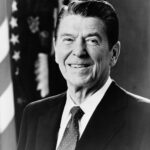The Trump Meme Phenomenon
At least for now, Donald Trump is out of the Oval Office. But did memes propel him there? Will they bring him back?
When Trump descended his golden escalator over six years ago to announce his candidacy, the world reacted with almost universal mockery. The seemingly far-fetched nature of the real-estate mogul’s candidacy combined with his controversial and idiosyncratic personality made him a magnet for attention — and memes. They ranged from laudatory (r/theDonald) to disparaging (“orange man bad” Twitter) to those in the middle laughing at the strangeness of Trump’s political success.
There has never been a president who was more of a living meme than Donald Trump. Practically every one of Trump’s quips and gaffes was apt meme fodder, and the surreality of him being in such a traditionally austere office made it even funnier. Add to this Trump supporters’ avid memeing and his willingness to share their memes, and you get a president who is also a dominant figure in meme culture. KnowYourMeme lists 235 entries for memes about Donald Trump, compared to only 40 for Joe Biden, 28 for Barack Obama, and six for George W. Bush. Where other politicians, such as Mike Bloomberg, floundered at trying to exploit meme culture, Trump did it without a second thought.
As much as Trump’s victory in 2016 came about because of serious social and economic problems, there’s also something to be said about it being an example (or perhaps the epitome) of the idea that our politics are becoming a reality TV show. Much has been written about how politics are increasingly driven by personality and optics. In the (poorly received) 2013 Black Mirror episode “The Waldo Moment,” a crass-talking animated bear rises to political power because people vote for him because of his entertainment value and to express dissatisfaction with mainstream politicians. Are we at a point where meme value has excessively dominated our political concerns?
Memes are a reflection and expression of cultural values, and in the case of Trump, they reflect the view that he was himself a meme. There were certainly people who were seriously worried about Trump, but the overall consensus was that he was mostly either someone to laugh with or laugh at. Maybe it’s embarrassing for him to be president, but it’s funny, so why not laugh at it? For most of his presidency, there were no catastrophic consequences with him in the Oval. Until the sixth of January.
In the context of the Capitol Riot, it would make sense for memes about the 45th president to take on a more dissonant tone: “Haha, the guy who just caused violence by trying to overturn a democratic election is a goofball with funny hair”. But, is that still funny?
On the other hand, there were plenty of memes about the riot itself. From a viking shaman to a MAGA beanie-clad man smiling as he absconds with the Speaker’s podium, the images from the Capitol made the event comically surreal, even though it was deadly. Is this just a sign of how strange our current events are, and has that absurdity made us say “This is fine“? There is something awkward about the idea that if a meteor were about to hit the earth, we would make memes about it.
But at the same time, from The Great Dictator to Jojo Rabbit, satirists have used humor to take on serious political topics, and memes can too. As G.K. Chesterton said, “Humor can get in under the door, while seriousness is still fumbling at the handle.”
But this implies that there ought to be a sense of social responsibility regarding memes, which seems contrary to what memes are about. Would memes be as fun if they weren’t about the pursuit of levity for its own sake?
After being banned from Twitter and leaving office, Trump no longer dominates the public conversation like he used to, though he still pops up in the news. It remains to be seen whether he will return to being the meme he once was, or whether his Internet cultural influence will fade.




